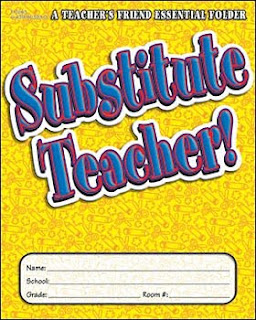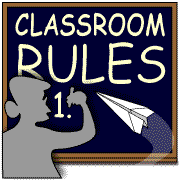
Okay, you came to school professionally dressed. You brought your grab bag of activities and events. You prepared the classroom before the students arrived. You ate your breath mints and smiled when the students entered. The day started off okay, but now it's 11:00 a.m., and the students aren't listening to you. In fact, they are throwing spit balls and having their own conversations. You know in your heart that the room is out of control. You are sweating, worrying about what will happen if someone opens the door and sees what is happening.
Take a deep breath. This has happened to all of us more than once. This scenario outlines what I call the rights of passage in substitute teaching. Despite all the careful preparation, there are times when we make behavior management mistakes because we do not know what we should do.
Children, even the very best behaved children, will look at a substitute teacher as an easy target to intimidate. It is my opinion that most of the time, substitute time is party time. It starts with the misdeeds of one or two children and escalates into a full-fledged wing-ding if you are not careful from the beginning. I have learned that is is important to establish yourself from the very first minute of class.
I carry around my own list of classroom rules (in my head). After the students enter the class, the first thing I do is introduce myself and share a bit about myself, and go over my personal expectations for the day. I set the stage and I follow my own rules. I provide students with a snapshot of the days events. I find that students misbehave more when they do not know what is going to happen. I always write a schedule down on one corner of the board that encompasses all the time in the day if the permanent teacher doesn't have a place to do so already. I also always leave 15 minutes free at the end of the day as a possibility of game or time for them to share something about their personal life or interests.
It is clear that the regular teacher has a huge advantage over us. He or she has established a rapport with the students over time. While the relationships with students is what I love about teaching and have been lacking since being a substitute, I try to stay positive about my current situation. I would love my own classroom to get to know the students and create original and exciting thematic units, so all I can do is hope for next year. For now, I am thankful for getting the chance to explore the different schools within the various districts I work in. I get a chance to see many different classroom setups and school environments. I not only get to get a feel for the type of school I would most like to work for, but I am continually learning, adjusting, and testing various education and teaching techniques.
I wish all you other substitutes out there the best of luck. If you want your own classroom, just keep doing what your doing. We will make it happen! For now all we can do is keep our chins up and our minds open and learn as much as we can along the way.



